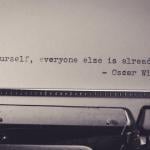 (Article is by Edward Kelly Jr. For brief bio, see below.)
(Article is by Edward Kelly Jr. For brief bio, see below.)
In my first Pastorate in a small rural church in Northeast Iowa as a Fundamentalist Pentecostal, a woman came into the church office and wanted to schedule a wedding. She explained that she had been living with a man for eight years, had several children and he had finally agreed to marry her. Without any hesitation or conversation, I gave her my answer based on my theological tradition. “Sally, you need to repent… before God can bless you with a wedding.” She looked at me dumbfounded and her lower lip quivered as she quietly asked, “what do you mean, Pastor?” I explained, “you need to move out of this relationship for a period of time.” Before I could finish, with tears rolling down her eyes, she blurted out, “you mean, you will not marry us unless I move out. That’s what you mean by repentance. My God, where do you get this stuff? I have been a member of this church all my life. I have never heard such crap.” She got up off the chair, wiped the tears from her eyes and as she walked out the door, shouted; “who do you think you are, God?”
I keep that encounter in my memory to remind me how my beliefs, that is, my dogmatic tradition limited my empathy for others. Let me begin with some definitions before I unpack that thought. What is empathy? Empathy is the “ability to share someone else’s feelings or experiences by imagining what it would be like to be in that person’s situation.”(1) Heinz Kohut defined it as “the means of obtaining information about what is going on in the inner world of another person.”(2) Empathy is opening up to the feelings of others by trying to understand their perspective, how they see and understand the world. As my mother used to say, it is imagining putting yourself in their shoes. One other crucial point, empathy is the spark to compassion, not compassion itself. Empathy is the key to understanding a person’s needs and therefore essential to a compassionate act.
It is obvious in the encounter that I was suffering from an empathy deficit. Why was that? There are many answers to that question, but one answer seems clear to me now. My dogmatic traditions or beliefs switched off my empathy. I was emotionally tone deaf because of my authoritarian belief system. What do I mean by dogmatic beliefs? As a Fundamentalist Christian, I carried around a large baggage of dogmas and beliefs. The word dogma is originally from the Greek language meaning an opinion or thought. In time, that word changed meanings and the Church’s opinions became carved in stone. The late professor Paul Tillich defined dogma as a “codified expression of reality.”(3) Thirty years ago, I was too focused on these codified expressions of reality to engage in feeling what someone else feels, or actively listening to gain someone else’s perspective. I was blind to feelings because I was so focused on being theologically right and a mediator of God’s grace. My perspective was that people needed my salvatory message, but I did not need theirs. That misperception automatically turned off empathy.
I discovered late in life that I had an empathy deficit. Empathy was not something that was taught in school or in seminary. That is surprising because interacting well with people is just as important (or more) as math, English composition, or history. For the last two decades, I have been working on developing empathy. Yes, empathy can be learned. It began with breaking the most structured habit I had as a Pentecostal minister – being judgmental. As a Pentecostal preacher, I was a spiritual vulture. A vulture is a scavenging bird of prey. They fly around looking for sick or dead animals to gorge on. I went around looking for what I thought was sin and “gorged” myself in judging and condemning people. I stopped being a spiritual vulture when I began to practice active listening; listening to learn the other person’s perspective without judging. I learned how to talk with people rather than at them. I learned to look at people when they spoke. I asked open questions to gain more insights. I began to practice what I found the most difficult to master; learning how to disagree without arguing – a much needed skill in our American-partisan culture. Empathy may not be a panacea for all our problems, but it is an important skill in interacting with family and fellow citizens and for the flourishing of democracy.
Subscribe to The Spiritual Naturalist Society
Learn about Membership in the Spiritual Naturalist Society
The Spiritual Naturalist Society works to spread awareness of spiritual naturalism as a way of life, develop its thought and practice, and help bring together like-minded practitioners in fellowship.
SNS strives to include diverse voices within the spectrum of naturalistic spirituality. Authors will vary in their opinions, terms, and outlook. The views of no single author therefore necessarily reflect those of all Spiritual Naturalists or of SNS.
__________
Notes:
1) Cambridge Dictionary, https://dictionary.cambridge.org/us/dictionary/english/empathy
2) Heinz Kohut, Self-Psychology, and the Humanities (New York: W.W. Norton and Co., 1985).
3) Paul Tillich, Systemic Theology Vol 1 (Chicago: University of Chicago Press, 1951).
BIO: Guest writer Edward Kelly Jr. lives in Red Oak, Iowa, with his wife Rose. He was a Fundamentalist Pentecostal preacher for 20 years and in 1995 began a journey out of fundamentalism through the influence of such writers as Paul Tillich and James Barr. He has a Masters in Theology from Franciscan University (Steubenville, Ohio) and is now a Humanist Chaplain and Celebrant.












